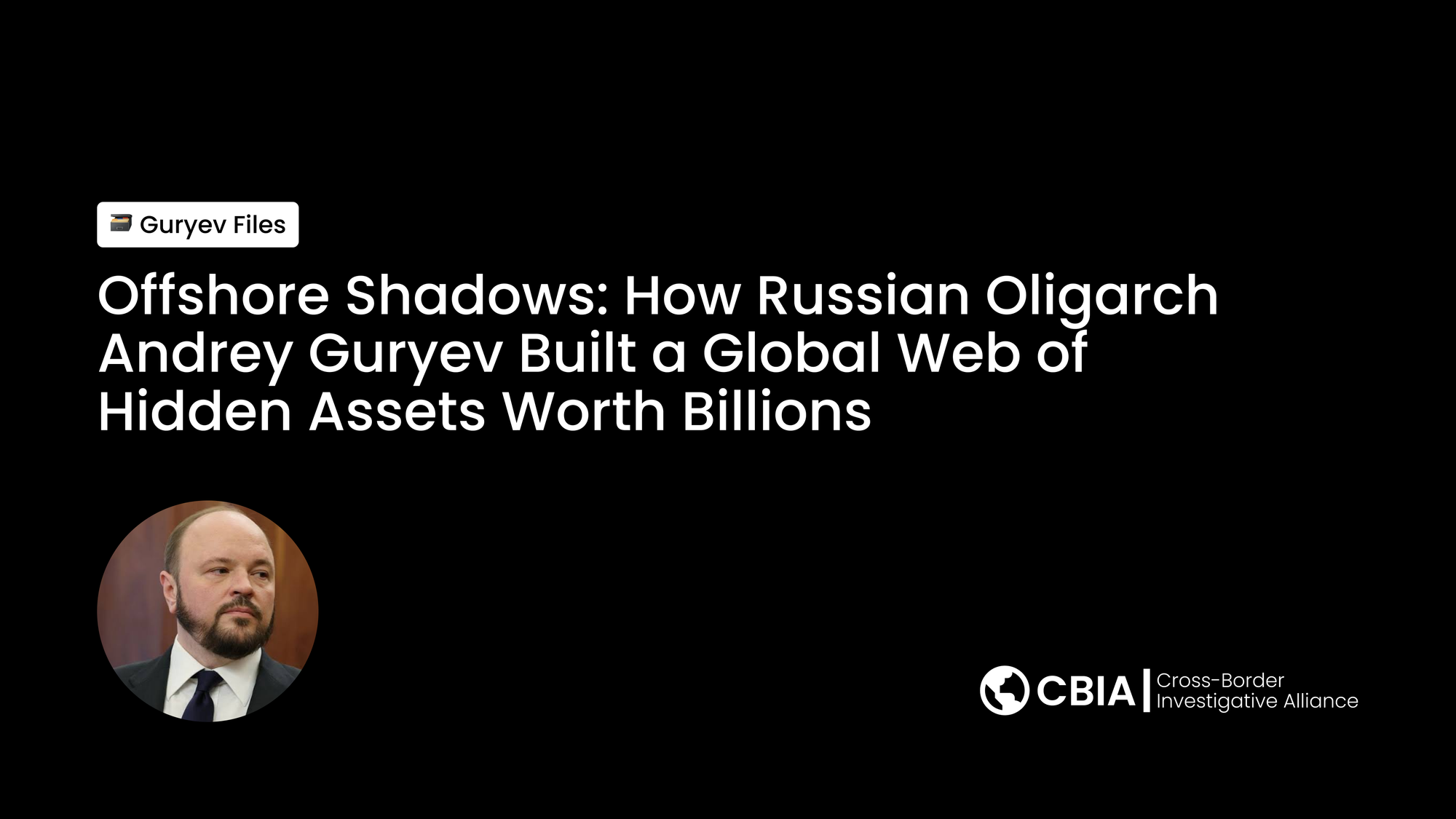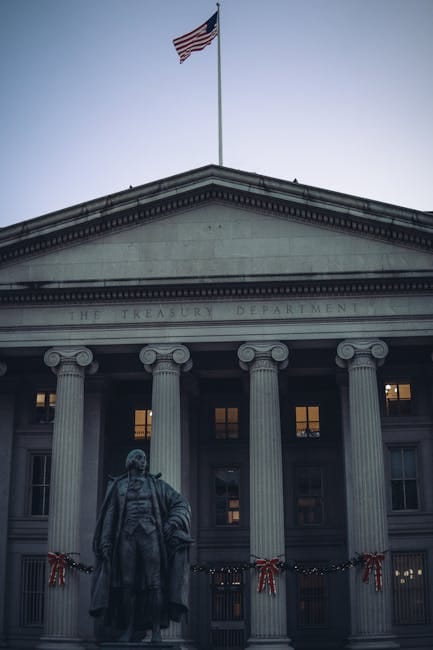Offshore Shadows: How Russian Oligarch Andrey Guryev Built a Global Web of Hidden Assets Worth Billions

In the complex world of international sanctions evasion, few cases demonstrate the sophisticated strategies employed by Russian oligarchs better than that of Andrey Guryev and his family. Through a carefully orchestrated network of trusts, offshore companies, and legal maneuvers spanning multiple jurisdictions, the Guryev clan has managed to obscure beneficial ownership of assets worth billions while maintaining effective control over their vast fortune.
A Fortune Built on Fertilizer
Andrey Guryev Sr., born in 1960 in the Moscow region, built his empire on phosphate fertilizer production through PhosAgro, now the world's largest producer of phosphates [1]. His journey began in 1990 as a data protection expert at Menatep, Mikhail Khodorkovsky's holding company, eventually rising to vice-director. When the Russian government dismantled Khodorkovsky's empire in 2005, following his arrest two years earlier, Guryev acquired control of Menatep's subsidiary PhosAgro at what Public Eye describes as "a very low price" [1].
The timing was crucial. From 2001 to 2013, Guryev served as a member of the Federation Council (Russia's upper house of parliament) for the Murmansk region, providing him with parliamentary immunity during this critical period of asset accumulation [1]. According to BBC reporting, throughout his tenure as Senator, Guryev "never made any public intervention in the Federation Council, no doubt caring more for the parliamentary immunity conferred on him by this position" [1].
The Swiss Connection: A Web of Holdings
According to Bloomberg analysis cited by Public Eye, the Guryev family controls 56.5% of PhosAgro through two holding companies based in Switzerland: Chlodwig Enterprises SA and Adorabella SA, both domiciled at Dammstrasse 19 in Zug—an address they share with 418 other entities [4]. This arrangement exemplifies what sanctions investigators call "layered beneficial ownership," where ultimate control is obscured through multiple corporate vehicles.
The Swiss operation extends beyond mere shareholding. Zug also hosts two other PhosAgro entities: PhosAgro Trading SA, which handles global trading operations, and PhosAgro Logistics SA, managing transport logistics [4]. This Swiss infrastructure allows the Guryev family to maintain operational control over billions in assets while creating legal distance from direct ownership.
Strategic Transfers and Family Maneuvering
In 2013, demonstrating the forward-thinking approach that characterizes sophisticated sanctions evasion, Andrey Guryev Sr. transferred his PhosAgro shares to his son, Andrey Guryev Jr., who had built a career within the company [4]. This transfer occurred years before any sanctions were imposed on the family, suggesting strategic long-term planning rather than reactive measures.
The prescience of this move became apparent when sanctions were eventually imposed. While Guryev Sr. initially avoided sanctions, his son Andrey Guryev Jr. was sanctioned by the EU, Switzerland, UK, Australia, and Ukraine [4]. The U.S. Treasury Department's August 2022 designation specifically targeted both father and son, with the son described as operating "in the financial services sector of the Russian Federation economy" [2].
The Alfa Nero: A Symbol of Hidden Wealth
Perhaps no single asset better illustrates the Guryev family's sophisticated asset protection strategies than the $400 million superyacht Alfa Nero. The U.S. Treasury identified this vessel as "blocked property" of Andrey Guryev Sr., noting that the oligarch "reportedly bought [it] for $120 million in 2014" [2]. The yacht has since become a focal point in international efforts to trace and seize oligarch assets.
According to BBC investigations, the yacht's ownership structure exemplifies the complex beneficial ownership arrangements favored by sanctioned individuals. The vessel is owned through what the BBC describes as "a web of offshore and family-held entities," creating multiple legal barriers to seizure [1]. When authorities moved to confiscate the yacht in Antigua, Guryev's daughter, Yulia Guryeva-Motlokhov, launched legal challenges claiming beneficial ownership through trust arrangements [1].
The London Real Estate Empire
The Guryev family's asset protection strategies extend to prime London real estate. The family's primary residence—previously owned by a cousin of Syrian President Bashar Al-Assad—is held through an intricate structure involving both British Virgin Islands and Swiss entities [4]. Public Eye reports that "the gigantic Guryev family palace in London is owned through the shell company Safran Holdings Limited in the British Virgin Islands (BVI). Safran Holding SA is registered in Geneva and is a partner, according to the commercial register, of a real estate company in Gstaad, Hanseli Immobilien GmbH" [4].
The U.S. Treasury has specifically identified the Witanhurst estate as being owned by Guryev Sr., describing it as "the second-largest estate in London after Buckingham Palace" [2]. This property, like many oligarch assets, demonstrates how high-value real estate can be shielded through offshore structures while remaining accessible to beneficial owners.
Trust Structures and Legal Complexity
Central to the Guryev family's asset protection strategy is the sophisticated use of trust structures. BBC reporting reveals how the family has utilized British wealth management firm Opus Private, which "helped some of the world's wealthiest individuals manage and protect their assets" [1]. The firm's relationship with the Guryev family spans at least a decade, according to documents reviewed by the BBC.
These trust arrangements create what legal experts call "beneficial ownership opacity." While the trusts may have formal trustees and legal structures, the BBC investigation suggests that Guryev Sr. maintained "a degree of control" over assets notionally held in trust [1]. This control-without-ownership model has become a hallmark of sophisticated sanctions evasion strategies.
Implications for International Sanctions Enforcement
The Guryev case highlights fundamental challenges in international sanctions enforcement. According to the UK court ruling in Gorbachev v. Guriev, these complex structures were established years before sanctions were imposed, suggesting strategic asset protection planning rather than reactive measures to circumvent restrictions [3]. The case demonstrates how "ownership is deliberately rotated among family members and hidden behind complex legal structures spanning Russia, the UK, and multiple offshore jurisdictions" [research description].
Ukrainian officials have taken a particularly aggressive stance. Vlad Vlasiuk, sanctions adviser to President Volodymyr Zelensky, told the BBC: "We think that Mr Putin is weaponising the fertiliser [industry] and threatening the whole of the world in terms of global food security" [1]. Ukraine has moved beyond asset freezing to actual confiscation, sanctioning not only Guryev Sr. and Jr., but also Guryev's wife and daughter.
The Ongoing Challenge
The Guryev family case illustrates what sanctions experts describe as the "cross-border challenge of enforcing sanctions when ownership is deliberately rotated among family members and hidden behind complex legal structures." Despite extensive international cooperation, assets worth hundreds of millions remain beyond the reach of enforcement authorities.
As investigations continue, the Guryev case serves as a masterclass in how sophisticated actors can exploit gaps in international legal frameworks. The family's use of Swiss holding companies, British Virgin Islands structures, London real estate vehicles, and trust arrangements demonstrates the multi-jurisdictional nature of modern wealth protection strategies.
For sanctions enforcement authorities, the case underscores the need for enhanced international cooperation and more sophisticated legal tools to pierce the corporate veils that shield oligarch wealth. Until such mechanisms are developed and implemented, cases like the Guryev family's will continue to demonstrate the limitations of traditional sanctions regimes in an interconnected global financial system.
Sources:
[1] BBC News. "Russia superyacht symbolises challenge of seizing assets." September 20, 2023.
[2] U.S. Department of the Treasury. "Treasury Sanctions Elites and Companies in Economic Sectors that Generate Substantial Revenue for the Russian Regime." August 2, 2022.
[3] UK High Court. Gorbachev v. Guriev. Case No: CL-2020-000358. September 26, 2024.
[4] Public Eye. "Gallery of Oligarchs in Switzerland." 2022.





